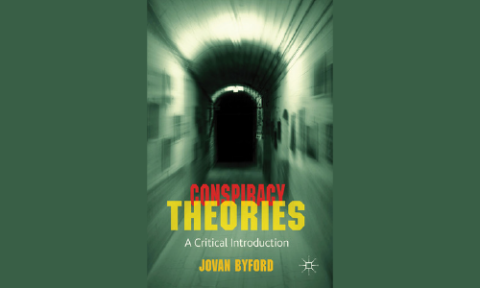Covid-19 Pandemic and the Psychology of Conspiracy Theories

Earlier this month, Jovan Byford, Professor of Psychology and History in the Faculty of Arts and Social Sciences, gave the first Open Psychology Research Centre talk for students. The short lecture, which took place on Friday 1 April, was followed by a Q&A session with the audience, moderated by the Centre’s Directors, Professor Paul Stenner and Professor Peter Hegarty.
In the lecture, Jovan reflected on the lessons of the Covid-19 pandemic for the psychology of conspiracy theories. The pandemic and the associated 'infodemic' have provoked unprecedented scholarly and public interest in the phenomenon of conspiracy theories.
However, the apparent susceptibility of people to conspiracy-based misinformation about the origins and seriousness of Covid-19 or about the vaccines also brought into question some well-established assumptions about the psychology of conspiracy beliefs and how to study it. The lecture considered what we have learnt about conspiracy theories from the pandemic and outlines key theoretical and methodological challenges that insights gained over the last couple of years pose to psychology.
The related blog can also be accessed on WordPress.
The next talk for students will be on Friday 20th May 2022 by Dr Gemma Briggs.
Photo credit Macmillan
Request your prospectus
![]()
Explore our qualifications and courses by requesting one of our prospectuses today.